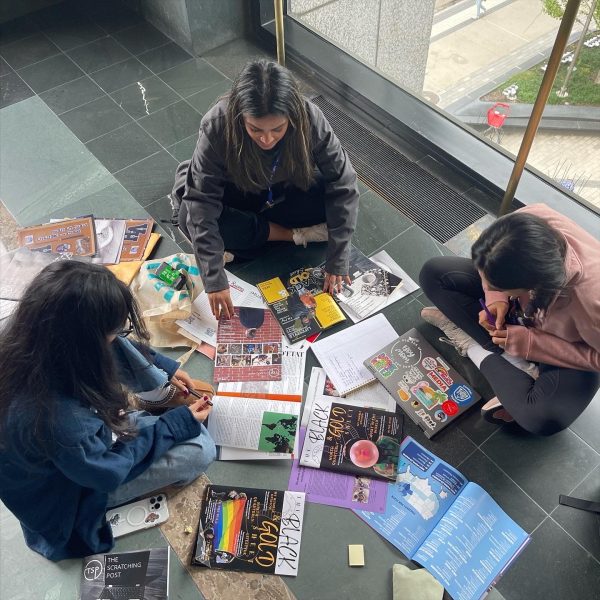The “F” Word
Feminism is not some radical movement, it is a term that encompasses the ideals that all humans, male or female, deserve equal rights. People need to stop stuffing society with the idea that feminist are anti-shaving and anti-men. There is nothing anti about feminism. It is pro equality.
Social media has been flooded with sexism; many people have harbored an aversion to feminism, too. Many people associate “feminist” with “men-hater.” This poor reputation leads to many misconceptions surrounding feminism. Before one comes to such conclusions, it is important to grasp the concept of feminism before deciding to bash it.
“Feminism is social, political, and economic gender equality,” said Mrs. Dircks, the VHHS sociology teacher. As one can see, feminism does not only apply to women as it is “gender equality.” Feminism wants women to have equal opportunities as men in society, politics, and the workforce.
Many women on the internet label themselves as not feminists since they don’t hate men; this proves just how essential feminism is. Feminism is not vitriolic. Feminism is not an outdated, anti-men movement. It is a modern advocacy for gender equality.
“Feminism sounds like it’s just for women when in reality, it applies to both genders,” said Andrew Daguinsin (12). Daguinsin recommended a change in the name for this movement to gain more supporters.
According to Nina Weisblatt (12), “Feminism is just common sense. Women are the ones fighting for it because they are the 51% of the population who has been denied their rights. They’re working the same jobs as men and not being paid equally.” Women power has been on the rise from the growth of females in the workforce and as CEOs. The unequal distribution of pay sparks conflict with feminists.
Additionally, the media’s portrayal of women helps contribute to sexism in today’s society. “Women are always housewives on TV and the men are the ones working” said Daguinsin. Feminism is working toward eliminating these gender expectations as they place limits on people.
Gender inequality can be traced back to childhood, as Mrs. Dirks notes, “Parents teach their children gender identity from a very young age. Girls are given Barbies while boys get GI Joes. In reality, they are both just dolls.” Many parents in today’s society disapprove of their son playing with “feminine” toys, or their daughter playing with “masculine” toys. Feminism works to erase these limiting gender expectations.
Dircks offered an example of gender expectations in today’s society: “In politics we see women like Hillary Clinton being judged based off her appearance more than any male candidate ever would”.
Feminism gives oppressed women a voice; “How come when I was a child and I took charge, my teachers called me bossy, but when a boy did the same he was considered a leader?” Weisblatt asked. These different expectations for men and women is what creates gender inequality.
“No one should be restricted from opportunities based on their gender”, Weisblatt adds, “Many people find it shocking to see someone standing up for equality and actually caring…feminism is a natural right”.
When you think of the “F” word I doubt Feminism comes to mind. Yet, due to the increasingly negative connotation surrounding this movement, fear in feminism has become a large issue. By understanding what truly encompasses feminism, the members supporting it would skyrocket. Only then, will we see real change.










